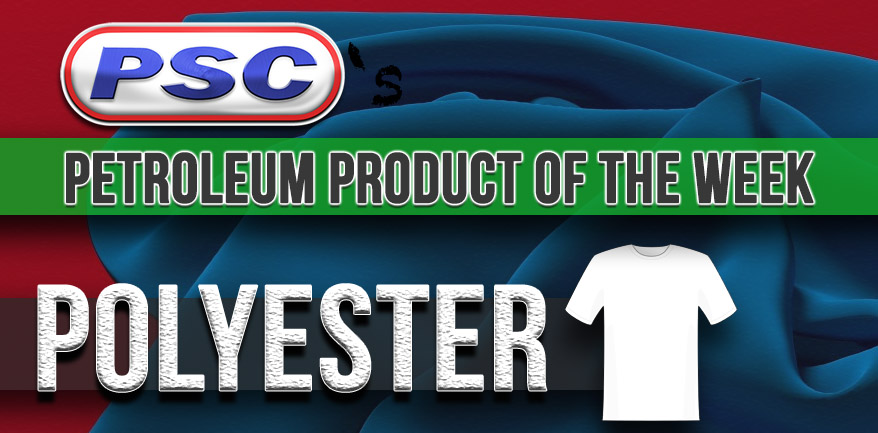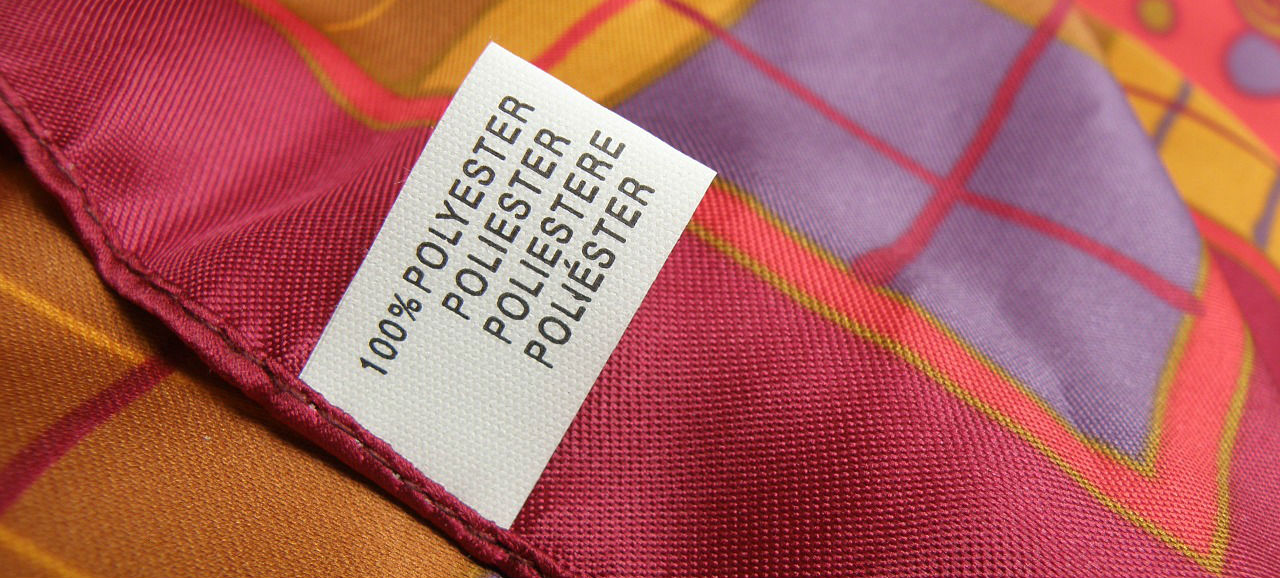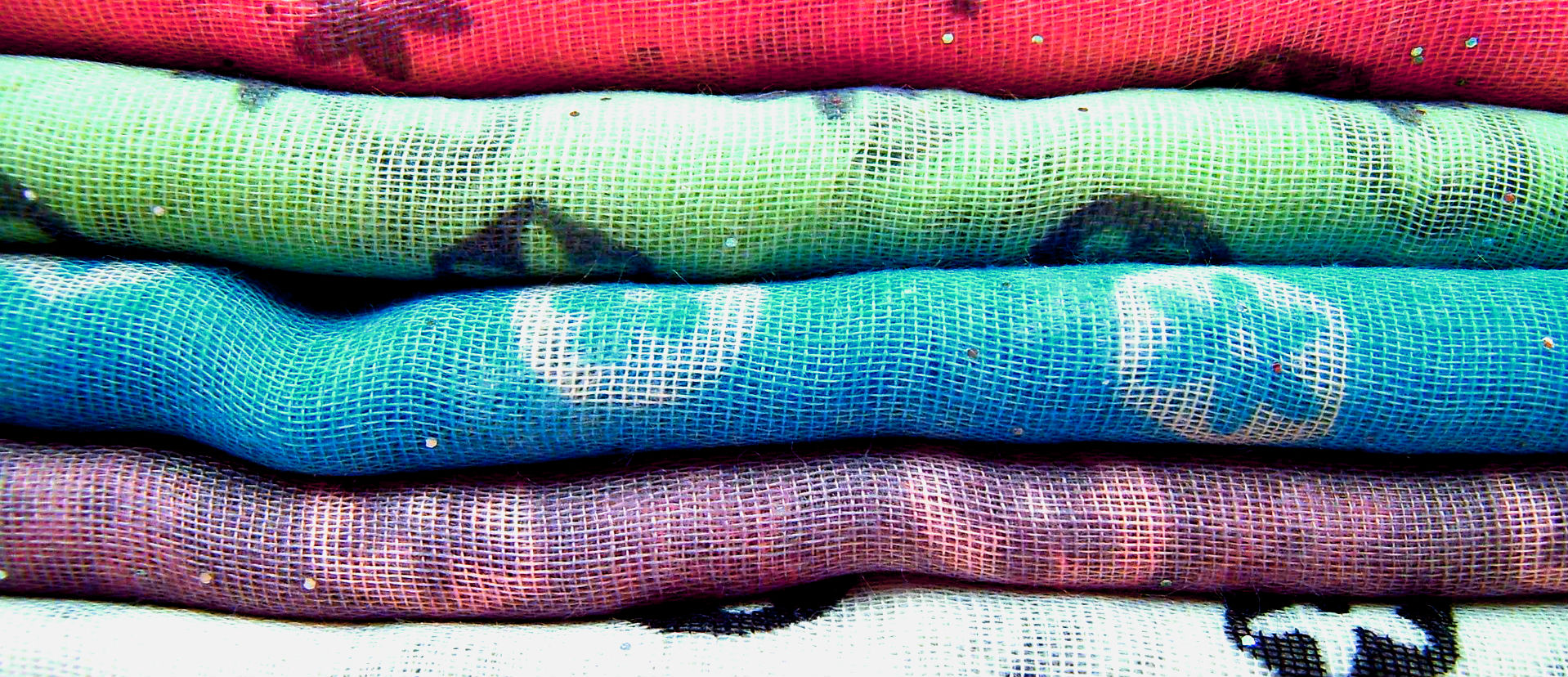Petroleum Product of the Week: Polyester Clothing
By on Sep 10 2016

In my hometown, t-shirts are a bit of a luxury.
We may be in the latter days of summer, but it's still breaking 90 F in Northeastern Pennsylvania and until the weather breaks and the cold air beckons us to prematurely don our winter coats, you'll likely never make a complete round-trip around Public Square without witnessing at least five shirtless men (often shouting obscenities).
This phenomenon is not so much offensive as it is confusing (especially in the context of a 21 st century middle-class American town); this is because most t-shirts come pretty cheap these days. We can attribute this to the enigmatic polyester.

For those who aren't aware, polyester is much unlike many of the common fabrics you routinely use to provide cover for your privates. Some of these fabrics might be woven from cotton, wool, silk, flax, etc. all of these are natural substances and fibers of both plant and animal origins. Quite obviously, cotton is the cream of the crop in this industry; in the US alone, cotton farmers produce up to 6.7 billion pounds of cotton per year. Still, as you may have gathered from the celebrity-studded cotton advertising campaigns, cotton can be pretty expensive.
Polyester doesn't have a celebrity endorsement and is more-or-less an odd-ball in the textiles industry. It doesn't require abundant farmland, capable farmhands, or clement weather. Instead, the manufacturing of polyester fabric requires complex synthetic formulas, multifaceted machinery, and factory workers sounds pretty ...fossil fuely to me.
Well, it is energy-intensivebut the manufacturing of polyester is actually a fairly green process as well.
Sound conflicting? It is. Most polyester fabrics are made from recycled plastic bottles, believe it or not. Shortly following the rise of the plastic water/soft drink bottle, factories have begun surfacing across the globe, dedicated specifically to this process. Recycled plastic bottles arrive at these facilities, many containing some small amount of liquid. The bottles are first shredded to remove any remaining liquid. After the liquid is removed, the labels and adhesive need to be removed to maintain a consistent plastic composition additionally, colored bottles are often separated to maintain a purely white fabric for the highest-quality polyester.
The shredded, cleaned plastic pieces are compressed into pellets, and then further melted down to form polyester thread. The thread is then woven into fabric or sold separately to clothing manufacturers. Even though polyester fabric is a lot cheaper to produce than cotton, high-end clothing manufacturers such as Patagonia, Nike, and Adidas all put this recycled fabric to great use.

Interestingly, researchers at Hoechst Fibers Industries conducted various studies in the early 80s and found that nearly 90% of all people could not tell the difference between polyester-fabrics and natural fibers such as silk, cotton, and wool. It has a high resistance to wrinkling and is often marketed as a wash and go " clothing product.
Of course, the connection with petroleum may seem rather distant at this point in the conversation. Nevertheless, polyester fabric is nearly 100% a petroleum-product. Polyester fabric is composed almost exclusively of the malleable plastic found in the common water bottle. These bottles are manufactured from petroleum hydrocarbons in a complicated polymerization process. While the idea of crude oil " is far separated from the manufacturing of these bottles, they simply don't exist without petroleum. This is both a blessing and a curse thankfully, polyester fabrics have been creating jobs, cleaning up excessive waste, and making a renewable resource out of something seemingly detrimental to the environment. It may not be an instant fix, but polyester fabrics are slowly chipping away at the plastic water bottle problem currently posing a towering challenge for environmentalists the world over.
In the meantime, help me recycle some plastic bottles so we can put some shirts on some backs.
SOURCES
http://www.naturalfibres2009.org/en/fibres/
http://www.cotton.org/econ/world/
http://www.whatispolyester.com/history.html
http://www.thomasnet.com/articles/materials-handling/plastic-bottle-manufacturing






